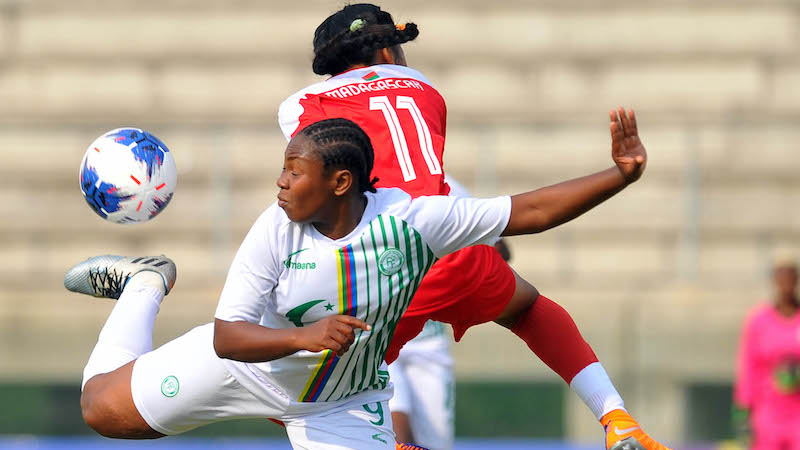Best finish: Group Stages (2019, 2020, 2022)
FIFA Ranking: 182
CAF Ranking: 42
Last five tournaments:
2018 – Did not enter
2019 – Group Stage
2020 – Group Stage
2021 – Did not enter
2022 – Group Stage
Comoros Islands will return to the HOLLYWOODBETS COSAFA Women’s Championship for the fourth time after difficult showings in 2019, 2020 and 2022 from which many lessons will have been learnt.
They will be keen to show their improvement but have been drawn into a tough pool that also includes defending champions Zambia, Angola and Mozambique.
It was the same on debut in 2019 when they were placed in a tough pool and lost all three games, going down 17-0 to hosts South Africa in their opener.
That is a record score in the competition as the eventual winners used their greater experience and physicality to ensure they claimed a big win. Comoros also lost 5-1 to Madagascar and 13-0 to Malawi in their other pool games.
They were certainly much improved on their return in 2020 when they lost their opener 4-2 to Eswatini, but then claimed an excellent 1-1 draw with Angola, their first point in the competition.
However, they came untuck again against the powerful South Africans, who won 7-0.
It proved a challenge last year too as they lost all three matches, conceding 15 goals in the process. They went down to Tanzania (3-0), and Malawi and Botswana, both by 6-0 scorelines.
Growth in the women’s game has been picking up pace and they will be keen to showcase their added quality in the regional championship.
That has been helped by top club Olympic de Moroni competing in the COSAFA Women’s Champions League for the past two seasons.
The country entered the preliminary competition for the 2015 FIFA Women’s World Cup, their first appearance, but after a 13-0 loss to powerhouse South Africa in the first leg of their qualifier, did not fulfil the return fixture.
They then did not enter the preliminaries for the 2019 World Cup and have also not entered the qualifiers for the African Women’s Cup of Nations since 2014.

